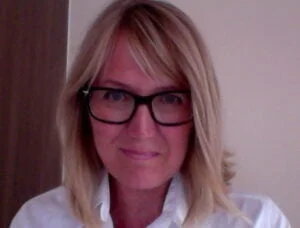Finnish self-published novelist Helena Halme makes the case for indie authors making writing their second or even third career.
Last week, I had a meeting with a small print publisher and as we chatted she told me – by the by – that she felt well-established authors, who do nothing but write, lose their voice because they are shut out of the ‘real’ world in their writing cocoon. She said that she had met several established authors whose work she couldn’t take on because she felt it felt stale, and had passed its peak. This publisher is herself an author, and writes when she can, while running her publishing business.
This kind of multitasking isn’t unusual, of course. Today many indie writers wear several hats. Successful author/entrepreneurs like Joanna Penn, Roz Morris, and Jessica Bell can vouch for the effectiveness of combining writing with a career in public speaking, professional services such as consultancy, editing or graphic design.
Historically writers have often been journalists/magazine editors (Dickens is a great example), teachers, lawyers, even nurses.
Why You Shouldn't Give Up the Day Job
Many years ago, when I attended a seminar on how to get published at The London Book Fair (this was long before the birth of Kindle and the modern indie author), I was shocked when one of the authors on the expert panel, sitting high above the heads of the audience, told the full auditorium that she was still working as a nurse and that writing was her hobby. She’d just won a newcomer’s prize for her novel. There were gasps in the room when she advised us all it best not to give up our day job even if, or when, we achieve the ultimate goal of being (traditionally) published.
Often it now seems that the most successful authors combine their writing with jobs in the literary field. When I was working in an independent bookshop, nearly all of my fellow booksellers were also writers. (This is worth remembering when you market your works at book shops. You may be talking to some-one just like yourself!)
Now I know the mathematics of how little traditionally published authors receive for their work, I can quite understand why this particular newcomer needed to keep her job.
The Financial Imperatives of the Indie Author
It is, of course, the financial realities, which often force all kinds of writers to have other careers. Just the level of rents and mortgages in cities like London, and my native Helsinki, makes it difficult to live off your writing alone, even if you don’t have to give percentages from your books sales to agents and publishers.
Personally I write in fits and starts, publishing a new novel every two years or so. I tend to get obsessed with a story and write the novel very quickly and edit at leisure, often taking a year to get a particular novel out. So, as you may have guessed, I could not live off my writing alone. (I think it’s generally accepted that you need to publish about one book per year to have a fighting chance to make a living from your writing).
At the moment I’m in a full-time job, running a not-for-profit association with a sizeable commercial arm, which allows me very little time – or head space – for writing. Or, I should say, novel writing. I now edit a quarterly magazine, writing some of the articles in two languages, and blog regularly on my personal blog and on other blogs (here for example). My articles are also published in magazines, such as ScanMag, so even though I’m not at my desk every morning writing a novel, I am still keeping my pencil sharpened.
I add words to the novel-in-progress – a sequel to my Nordic love story, The Englishman, when I have a chance; at weekends, on holiday, sometimes at night if I am really obsessed with a part of the plot.
My dream is to be able write full time, but after ten years of writing as a second (or third) career, I wonder if I would really be able to sit down and write a certain amount of words each day? And, if my publisher friend is right, would my writing suffer if I did nothing but write?
I at least, feel the need to live in between my books; to add to my experiences of life, to inspect and examine people around me; to study the human condition. Isn’t that what we novelists need to write about anyway?
OVER TO YOU
Do you think it’s important that writers have second careers to keep their writing fresh? Please join the conversation via the comments box.
Helena Halme will be at the inaugural Indie Author Fair in Chorleywood, Hertfordshire, UK, on Sunday 16th November, and will be very pleased to meet you there.
 EASY TWEET
EASY TWEET
Do indie #authors need a second career to keep their #writing fresh? by @HelenaHalme https://selfpublishingadvice.org/second-career/ via @IndieAuthorALLi #selfpub







[…] me; to study the human condition. Isn’t that what we novelists need to write about anyway?” (selfpublishingadvice.com) And Nathan Bransford perfectly voices my own opinion when he said, “When the writing is tough, […]
I am coming to this post late but just wanna chime in and say how much I agree with you! Personally I think I will be bored if writing is my only career. It’s a largely solitary profession and I am an extrovert, so I need to be around people to be happy. When I was working part time it was really ideal. I worked a non writing related job and it was great. Now I have a job that leaves me morning free and has a lot of down time at work. It’s an awesome mix. A job allows me not to fret about the bills, and also provides me experiences to fuel my writing. Also, I get to socialise. Win win
[…] me; to study the human condition. Isn’t that what we novelists need to write about anyway?” (selfpublishingadvice.com) And Nathan Bransford perfectly voices my own opinion when he said, “When the writing is tough, […]
Hmm. I was brought up by a professional full-time woman novelist who wrote over 150 novels, and am myself a full-time professional author, supporting my large family on my income from both traditional and self-published books. Is my work stale? I hope not, possibly because I take care to write in several different genres under different names. Do I knuckle down and write a thousand words every day? Not always, but then I also home-educate some of my special needs kids, so writing has to be slotted into early mornings and evenings mostly. But I do try to write at least 10,000 words per week, or more when necessary, and publish between 3 and 6 novels and/or novellas each year, plus short stories. Just saying, it doesn’t work for everyone as a lifestyle, but that does not mean we can afford to be prescriptive and say NOBODY should be a full-time writer. Because some of us are full-time, have been for many years, are not going stale, and are still doing okay on it financially – though adapting to circumstances has become the name of the game these days. Just saying, keep an open mind. Good luck!
Since my first book is a memoir woven in with a tale about a very special dog – I’d have to say I’d not HAVE a book for for my day jobs (former female pilot, now Ph.D. in law enforcement). I think that if I felt I HAD to write a second (in the works) or third (maybe), I’d run out of things to write about because all I was focusing on was the writing. My day’s experiences–good or bad, fuel my creativity.
LB Johnson – Author of the Book of Barkley
[…] Why writing shouldn’t be your first career. ALLi. […]
As a non-fiction writer, I need my day job to inform my writing, as many “how-to” books where the writer doesn’t have experience in the area about which they’re writing can fall very flat. So I need my successful business to help me to help other people with theirs, if that makes sense.
[…] need to be connected to the world—the awesome blog run by the Alliance of Independent Authors made this point […]
For years, when I was working full-time, I wrote during my lunch hour and at weekends. Until 2010 and was made redundant. Now I try to write as much as I can, every day, but it doesn’t always work out that way, esp if I have appointments or I don’t feel like it.
I’m a stay-at-home-mom, with a 2.5 year old and #2 on the way. I consider that to be my first (primary) job, but it doesn’t really inform my writing, since I write adventure fantasy. Writing is my escape into another world, my way to take a break from toddler tantrums and get away from the mundane troubles of parenting. Similarly, my prior career was in the corporate world, and writing served the same function. I guess what I’m trying to say, is that to some degree the “real world” sometimes serves as motivation, but depending on the genre you write and your primary job, may not provide much inspiration.
That said, I hope to eventually be a full-time indie author, working while the kids are in school, and at night. I plan to independently publish, and with a background in business, I will run the publishing side of writing as a true business, with marketing plans and project management and everything in between. I imagine, though it’s hard to know, that most indie authors treat their publishing as a legitimate business, while their writing is the creative outlet. I wonder…you’ve mentioned that many authors work in the literary industry, so given the ALLi audience, wouldn’t indie-publishing “count” as a separate career?
Megan — I would agree with you. With a similar background in business and IT, how lucky are we that we can create and then manage the business too! They are two very different roles.
I met Joanna when she was here in Toronto this past summer and I thought then how fantastic it was — she has her public speaking, her podcasts, her fiction, her nonfiction. She is clearly not stagnating in her writer’s garret! I’m still in the very early stages of figuring it all out, but each and every day is so exciting with the possibility of it all.
And, truthfully, while I love withdrawing from the world to write, I don’t think I could ever be completely fulfilled if I didn’t have my share of “life’s disruptions”. In fact, my best writing days come after I’ve spent time with one of my disruptions. 🙂
I also think my writing life is ideal now that I’ve joined ALLi and Goodreads. It’s made me think twice about my dream of becoming a traditionally published author. You know what they say about be careful what you wish for!
I love writing and having a ‘day job’. I hear some wonderful life stories from the girls at work (all fodder for my books) plus I find I can bat ideas off them. For example, I was worried about my Regency heroine getting pregnant when acquiring a lover and there followed a very earthy and lively debate about contraception. From it I was able to come up with a solution. Bet you can’t guess what it was?
Debbie, it’s interesting you should mention politicians, because my husband mentioned this similarity too. Of course us writers have a certain social responsibility too, as we could influence a whole generation with our publications. (In my dreams!)
Debbie, it’s interesting you should mention politicians, because my husband mentioned this similarity too. Of course us writers have a certain social responsibility too, as we could influence a whole generation with our publications. (In my dreams!)
Ever since I was a child, I wanted to be a writer, but when I was in my last year at school, my dream of setting myself up in a garret (yes, that was really what I wanted!) and bashing away at my scarlet portable typewriter was quickly quashed by my parents and teachers who insisted I should go to university. Even though English had always been my favourite subject, I took this course unwillingly, and by the time I’d gained my degree, I had been primed to join the conventional rat race. Within a couple of years of joining the world of work, I realised that I could earn my living from writing by becoming first a journalist, then a PR consultant, and finally working for charities, before taking the plunge last year to give up the day job. By this time I’d been working long enough to pay off my mortgage and my husband, who is a little older than me, had retired, so the financial imperatives had diminished. Even so, I don’t write full time, but at least I’m now working for myself and am able to write for a significant part of every day, if I get myself organised. But I know that I’m a much better writer than I would have been without this lifelong “training”, so really I should have no regrets.
I believe it’s analagous to the situation with politicians. In the UK, at least, we now have career politicians who have never worked in any other sphere. I for one would rather be represented and governed by MPs who have lived full lives beyond Westminster and the Houses of Parliament, and I’d also rather read a book by an author who has spent most of his life outside of his garret.
Excellent article. My dream is to be a full-time writer but I suspect that’s what it will remain for some time. A dream. Like Orna said, having all the time in the day to write does not necessarily make one more productive. If I do succeed and become a full-time author, the friendships and connections I have made since I started publishing should hopefully keep me grounded in reality. But I wouldn’t say no to a part-time job linked to my writing!
Well said, I think a part-time job in the literary world is ideal, although I found that when I was working in a bookshop talking books all day, I had very little creativity left for writing in the evening. For me a completely separate career combined with writing works better. I am trying to get back to a four day week, but that is some way away yet.
I can see how not working at all; or having writing be your sole source of income, could either put too much pressure on your writing, or disconnect you too much from the real world most people live in. On the other hand I think the easiest way to get a book done is to sit down and write it, for hours and hours each day, and have it be your only focus. If you have a job that takes up so much of your time that you only have an hour or so a day, your novel is going to drag on so long that you’ll have a totally different perspective towards the end than you did when you started. I think writers need to develop skills so they can start their own businesses, which gives them schedule flexibility to really put their writing first, when they need to. Otherwise it’s too easy to say, “well I worked hard today, I don’t need to write” or “I’ll work on my novel after this big project is finished.” I’d love to be able to making enough money just from book sales that I didn’t have to do anything else, but to get there, you need to put out a lot of books, and that takes a whole bunch of time.
I’m sure as with all things, it’s a chicken and egg situation. At least us writers can usually work well into our retirement so at least we have time…?
Great post Helena. In 2009, for health and family reasons, I wrapped up a business in Dublin and moved to London and it was my intention to write full time, once I was finished treatment. I did for a while and I wrote very little. Since starting ALLi in 2012, I’m back into a nice writing rhythm again. If I know I have all day to write, nothing happens …. but if I have to do something at noon, then the morning is spent happily scribbling. When I was a “full-time” writer, writing turned into a chore. Now, it’s back where it was before, my precious, stolen time. Thanks for writing about this!
How right you are Orna! I’ve had a similar experience – albeit a very short one. Four years ago when we moved away from the country and (also) to London, I had a few months when I was meant to be writing full-time, but got virtually nothing done. Instead I became a master procrastinator. I was ‘saved’ by the need to earn more money and here I am terribly busy but still managing to write a little every now and then. Ideally, it would be nice to have a part-time job, but I seem to have a knack for turning every small job into a major one…I’m glad you liked the post; here’s to multi-tasking!
Charles – you and me both! And I’m glad you enjoyed the piece. Helena
I think there is a large element of truth in this theory but I think it is not so much whether you have a “job” but whether you allow yourself to become isolated as many writers have, perhaps, done in the past. Nowadays, with the advent of the Internet one can be exposed to a whole range of experiences and information that, even just a few years ago, would have been impossible. That said, how fertile imagination an author has is also a huge factor – I don’t think anyone would expect Stephen King to go back to a 9-5 job to enhance his writing skills.
I’ve often heard that agents and publishers like to keep authors in their boxes and neatly labelled – churning out serial after serial or writing in the same genre because that’s what they believe the reader wants. Personally, I find lengthy serials dull – the stories are usually not epic enough to maintain my interest. Formula plots and writing usually becomes dull without the epic explosions and comical villains of Bond films or the genius of Tolkien. I would rather read a stand-alone novel and if the author is good enough I will come back for more whatever they produce the next time. My current favourite is John Niven -you never know what he is going to produce so everytime I read him it always entertaining.
The good thing about self-publishing is that you can write what you want without limitations or the pressure to conform. I do see many self-publishers using serials as a way of establishing an audience quicker but when you’re tired of a character it will be a hell of lot easier to kill him off than when your agent is pressing you for your next book.
Jane, you are my kind of reader – and writer. You make some excellent points; indeed one would not expect someone like JK Rowling to find a job as an editor either, but isn’t it interesting that her latest detective novel under the pen name Robert Galbraith is about the literary world? I didn’t like the book as much as the first Cormoran Strike story, because it felt stale to me.
Oh well, I’m probably just jealous…. 😉
This is probably my fifth career, and everything I’ve done in the past has informed my writing. So I have to agree one hundred percent! Though I write full time now, I still plan to supplement that with all kinds of other work as time goes by. Thanks for the article!